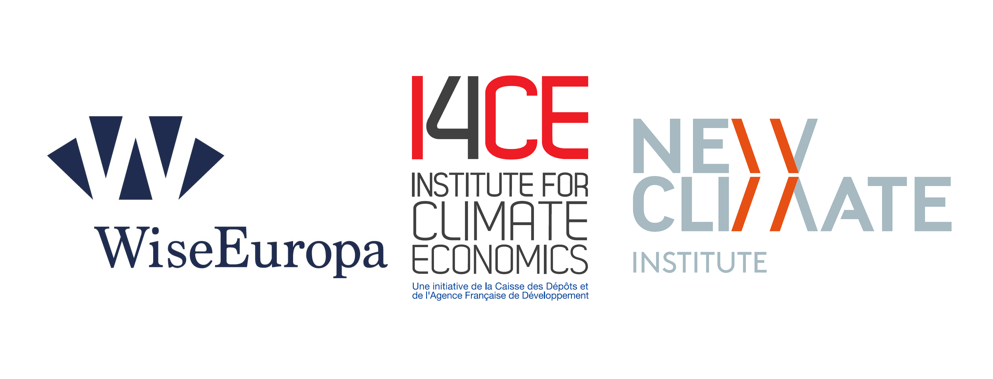Webinar I Landscape of climate finance: From supporting recovery globally to recent advances in the CEE region
As part of the EUKI-supported project “Landscape of climate finance: Mainstreaming climate finance in the CEE region”, this workshop aims to connect the global discussion on tracking climate-related investment and finance flows with recent work in the central and eastern European (CEE) Region.
Workshop objectives
- Provide an updated and an overview of the state of knowledge on tracking climate-related investment at the global and national levels
- Explore the usefulness of this form of data collection and analysis for policy making, particularly as countries move forward with COVID recovery plans
- Present the recent work of experts from the CEE region regarding landscapes of climate finance for specific sectors.

Programm
11:00-11:10 Welcome & Introduction I4CE, Wise Europa, NewClimate Institute & EUKI
representative
11:10-11:50: Climate Investment: From Global to National Challenges – How Can Climate Finance Tracking Support Post-COVID Recovery Plans?
- Aki Kachi, NewClimate Institute: Current trends in green recovery measures (10 Min)
- Hadrien Hainaut, I4CE: From Landscape studies to Recovery Plans – examples from France (10 min)
- Discussion (20 min)
11:50-12:50: Climate finance tracking at the national level: methodological exchanges – Spotlight on the CEE
- Zofia Wetmańska, WiseEuropa: Polish Landscape of Climate Finance: Energy & Building Sectors (10 min)
- Michaela Valentová, Czech Technical University in Prague: Czech Landscape of Climate Finance (10 min)
- Agris Kamenders, Riga Technical university: Lessons from Latvian Landscape (10 min)
- Discussion (30 min)
12:50-1:00 PM: Next Steps Domestic Landscape Tracking
- Round table presentation from panelists and participants on what their next steps and areas of work are
This webinar was financed by the European Climate Initiative (EUKI) of the German Federal Ministry for the Environment, Nature Conservation and Nuclear Safety (BMU). It was the overarching goal of the EUKI to foster climate cooperation within the European Union (EU) in order to mitigate greenhouse gas emissions. The opinions put forward in this workshop were the sole responsibility of the organizers and do not necessarily reflect the views of the Federal Ministry for the Environment, Nature Conservation and Nuclear Safety (BMU).
Supported by
